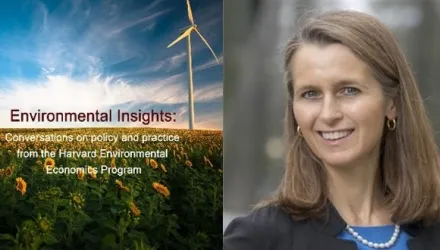
Note
PBS NEWSHOUR published "Why the U.S. Should Remain in the Paris Climate Agreement," a commentary based on this Viewpoint on April 27, 2017.
In the five decades since the first Earth Day1 was celebrated in 1970, remarkable economic growth around the world has inevitably been accompanied by significant environmental challenges. While tremendous progress has been made to address concerns about air and water quality, hazardous waste, species extinction, and maintenance of stratospheric ozone,2 leaders around the world continue to struggle to address the threat of global climate change in the face of the steady accumulation of greenhouse gases in the atmosphere.3
The entire Viewpoint may be downloaded below.
Notes
1 For more information about Earth Day, see www.earthday.org.
2 See the International Institute on Sustainable Development’s 2015 report, Global Goals and the Environment: Progress and prospects, accessible at www.iisd.org/library/global-goals-and-environment-progress-and-prospects.
3 Further information on the threats posed by global climate change is available from the Intergovernmental Panel on Climate Change (IPCC) at www.ipcc.ch.
Viewpoints present policy proposals, considered opinions, and commentary by distinguished policymakers, leaders from business and non-governmental organizations, and scholars. The Harvard Project on Climate Agreements does not advocate any specific climate-change-policy proposals. Statements and views expressed in Viewpoints are solely those of the author(s) and do not imply endorsement by Harvard University, the Harvard Kennedy School, or the Harvard Project on Climate Agreements.
Ban, Ki-moon and Robert N. Stavins. “The United States and the Paris Agreement: A Pivotal Moment.” April 2017




